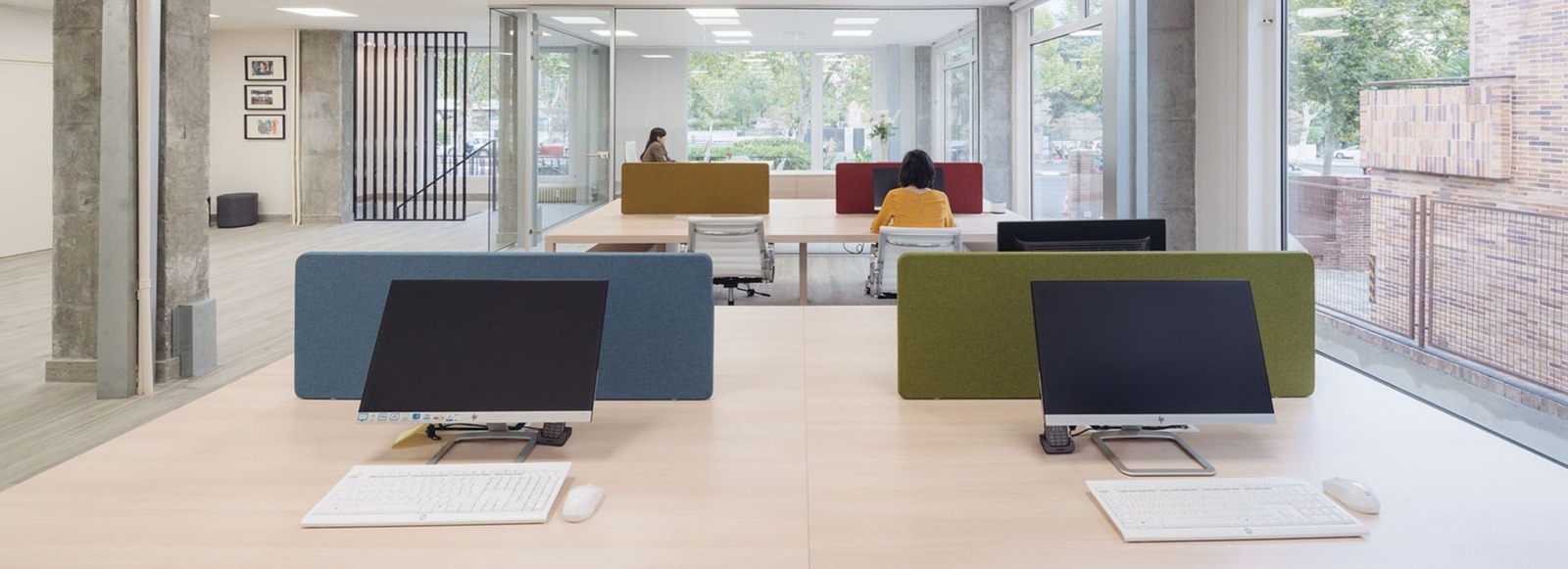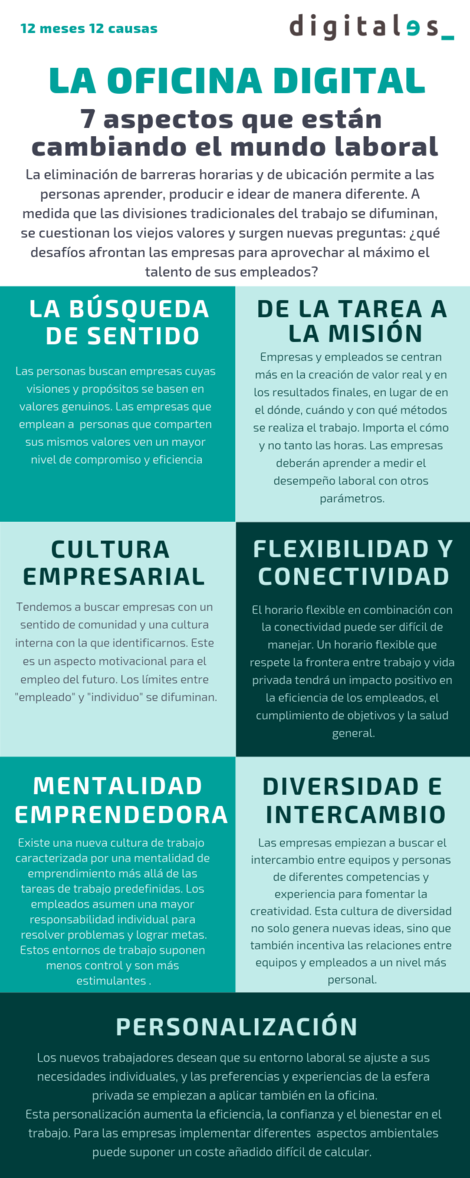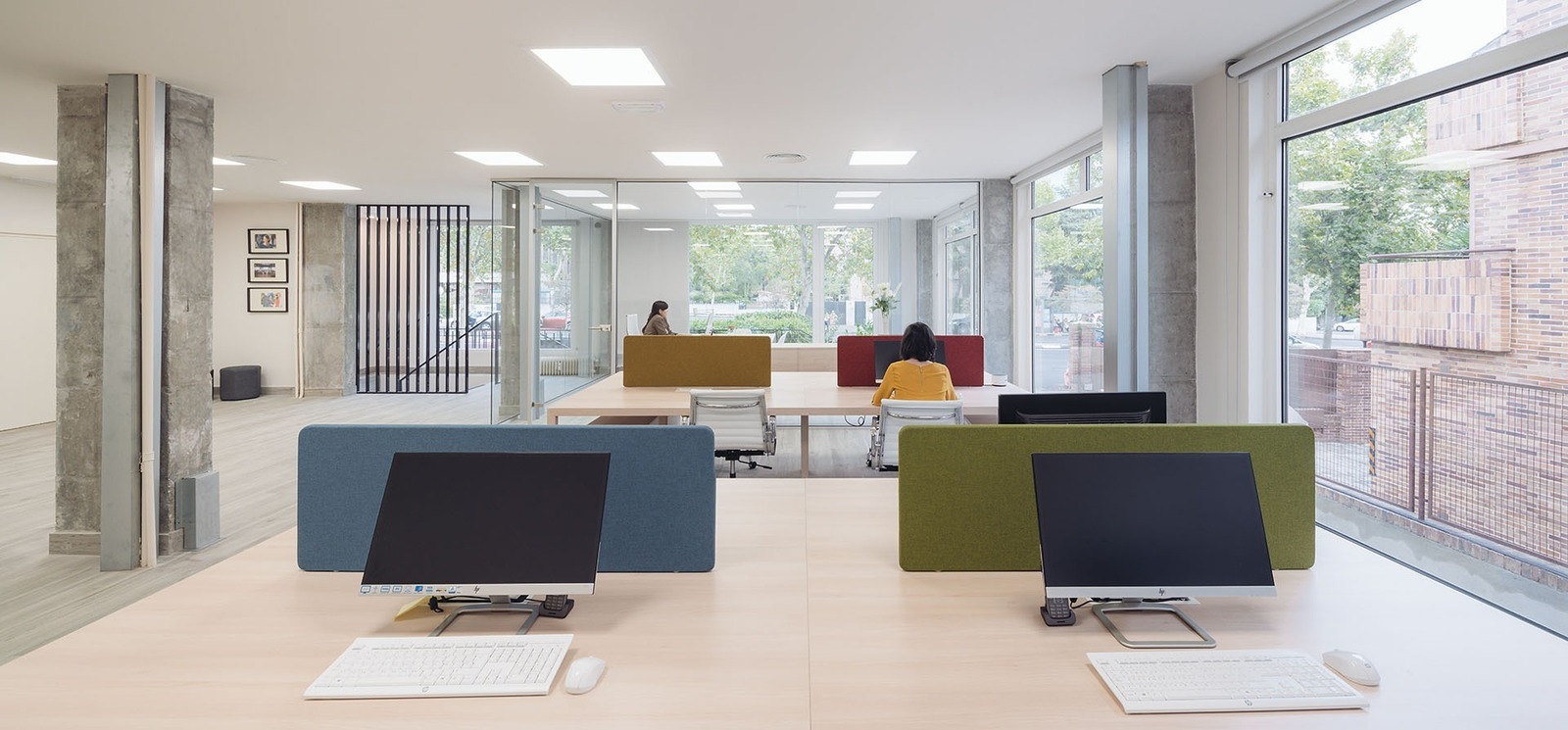04/03/2019
Digitalization has profoundly changed the way we work. From schedules and processes, to the very concept of the office, which could cease to make sense in the not too distant future. Thanks to tools such as the smartphone, people have access to the work cycle at any time of the day, blurring schedules, vacation time and even time for personal matters, which sometimes can now be taken care of during what used to be considered working hours.
People are becoming more mobile and expect greater flexibility in their work, and therefore demand more from their companies. The world in which organizations operate is changing, and they will have to rethink the nature of their workplace in order to survive. It will be crucial to understand and align with the changes that are taking place. But what are the main challenges that organizations must face?
3. Diversity and exchange
Companies plan random meetings between people with different skills to stimulate the creation of innovative ideas. It can also work between small companies that share co-working spaces.
The work environment should be designed to encourage relationships between teams and employees on a more personal level that are rewarding for everyone.
4. Customization
New workers want their work environment to be tailored to their individual needs, and preferences and experiences from the private sphere to be applied in the work environment
This customization increases efficiency, confidence and well-being at work.
5. From task to mission
Both employers and employees are more focused on actual value creation and bottom-line results, rather than on where, when and with what methods the work is performed. Traditional parameters such as working hours are no longer measured, but rather the achievement of objectives.
This creates a much more flexible and cost-effective work environment, and increases employee motivation and sense of freedom.
6. Corporate culture
We tend to look for companies with an internal community and culture to identify with. Companies should prioritize the promotion of a cultural identity, as it becomes a key motivator for performance and the willingness to stay with a company.
7. Meaningful work
People look for companies whose visions and purposes are based on genuine values. If they share the same values, they become the best brand advocates and increase their level of commitment and efficiency.
A success story
The consulting firm HFS Research points out as a success story the Swedish company Ericsson, a DigitalES partner, which has managed to develop a digital strategy to become a OneOffice organization and retain its leadership.
This strategy aims to focus Ericsson’s operational model on data and the customer, leveraging new technologies such as intelligent analytics and artificial intelligence to further drive cost savings and remain competitive.
The first and big question is: does an office as we know it make sense? Probably not, to the extent that tools such as Skype, WhatsApp, Trello or Asana facilitate mobility to limits that were unimaginable just a short time ago. The challenge for companies is to replace the current office model with a more flexible one and provide a dynamic and inspiring workplace.
It is not just a matter of introducing new tools, but of changing the corporate culture. These are some of the keys to successfully tackle this process and transform the workplace into a true digital office.
Bidirectional flexibility
Companies must respect the boundaries between work and private life. If achieved, flexible schedules and freedom at work will have a positive impact on employee efficiency, goal achievement and overall health.
2. Entrepreneurship mentality
There is an emerging work culture characterized by an entrepreneurial mindset beyond predefined work tasks. Workers assume greater individual responsibility for solving problems and achieving goals.
These work environments are more stimulating and rewarding for entrepreneurs, but to create this type of culture the company must relinquish some of its control measures. The challenge is to achieve this without neglecting a harmonization of objectives so that employees never lose sight of the common goal.












